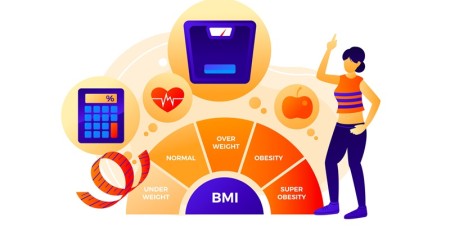Flu vaccination: Your best shot at staying well!
Flu season is in full swing in most parts of the world. Immunization is the leading factor in preventing the flu, reducing its impact, and minimizing complications from the flu.
Health care providers—doctors, nurse practitioners and pharmacists—have a role to play in supporting widespread immunization. As part of your health care team, ADV-Care strongly recommends that you get immunized!
Recent research shows immunization rates increased modestly when pharmacists were allowed to give flu shots. While ADV-Care, as an online pharmacy, can’t provide flu shots for you, we firmly believe in the individual and public health benefits of flu shots. So we’re absolutely encouraging you to get immunized, whether that means visiting a brick-and-mortar pharmacy, seeing your doctor or making a walk-in clinic appointment.
Why you should get the flu shot?
Partly, it’s for your own health. Getting the flu shot makes you more resistant to the flu, so you’re much less likely to get sick. It’s a straightforward benefit to you!
Partly, it’s about the people you care about—your friends and family, your work colleagues and so on.
It’s also about people you don’t even know—random strangers on the bus or in the shopping mall. Perhaps most importantly, this also includes people whose age or medical situations prevent them from getting the shot themselves, and who rely on herd immunity to stay safe from a flu that could have devastating effects on them. Some people cannot get immunized because they are undergoing cancer treatment, or their immune systems are compromised, or they’re too young to be immunized. Getting the flu shot even when you’re not a member of a high-risk group helps promote herd immunity and protect those who can’t get the shot.
Immunization is critical in reducing the spread of disease.
Here’s how the flu shot works.
Every year, World Health Organization (WHO) researchers look at data and predict which flu strains are most likely to spread. The flu vaccine is then produced to protect against the most likely strains. Because this a prediction based on probability several months to a year before the flu season the vaccine is designed to protect against, the flu vaccine is not 100% effective. Flu strains can also mutate or die out and new unanticipated strains can emerge.
Recent studies suggest that flu vaccination usually reduces the risk of influenza illness by 40% to 60%. So, while getting a flu shot is not a guarantee that you won’t get sick, it’s definitely much better protection than not getting the shot!
When you get your flu shot, your body prepares itself by generating antibodies. Sometimes this can make people feel like they have the flu coming on, but it doesn’t actually make you sick. Sometimes, you may get your flu shot but then you get the flu quite soon after. In that case, you were likely already exposed to the flu virus and your body could not generate the antibodies in time.
If you do get the flu, you can reduce its impact.
First, make sure what you have is the flu and not a severe cold. People with the flu experience muscle aches, fever, chills, sore throat, headache and severe fatigue. You may also have a runny nose and a dry hacking cough.
For most people, the flu will pass within a week. Your doctor may prescribe Tamiflu and rest.
Some other things you can try to minimize the negative effects of the flu include:
- Wash your hands often with soap and water. Here’s a hint: sing happy birthday to yourself—that’s how long you should wash your hands!
- Do the “vampire sneeze” into your arm or sleeve—like a vampire sweeping his cape up to cover his fangs. Sneezing spreads tiny droplets of liquid containing flu germs. Containing your sneeze in your sleeve reduces the spread of infection!
- Reduce your contact with others: stay home if you are sick. Avoid crowded spaces such as shopping malls, grocery stores, places of worship, concert halls and movie theatres. Take a sick day or work from home if you possibly can—your colleagues will thank you, and so should your boss. After all, overall productivity will be higher if fewer people get sick!
- Clean all surfaces with disinfectant wipes or cleaners. Did you know flu viruses can live for 24 to 48 hours on hard surfaces? That means you need to wipe down counters, laptops, phones and door handles!
Still, flu complications can arise, and some people are at higher risk.
WebMD lists several possible complications from the flu, such as viral or bacterial pneumonia, dehydration, and sinus and ear infections. Other issues that could develop include muscle inflammation and heart-related inflammation (myocarditis and pericarditis). Some people are especially vulnerable to such complications:
- Children under the age of five, and especially those under 12 months
- Adults older than age 65
- Residents of nursing homes and other long-term care facilities
- Pregnant women and women up to two weeks postpartum
- People with weakened immune systems
- People who have chronic illnesses, such as asthma, heart disease, kidney disease, liver disease and diabetes
- People who are very obese, with a body mass index (BMI) of 40 or higher.
Influenza can also make chronic illnesses worse, so people with congestive heart failure, asthma or diabetes need to keep a close eye on symptoms. In short, if you’re in a risk group and you get the flu, take it very seriously and seek medical attention quickly as needed.
Nothing can fully eradicate the flu, but if you get it, the above tips can help you recover quickly and avoid spreading it to others. Still, getting vaccinated remains your best shot—and collectively, the population’s best shot—at staying well and healthy this winter. It’s not too late to get your flu shot!
Book an appointment to receive your vaccination, covered by OHIP










